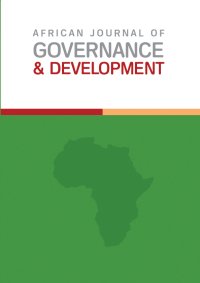Politicising the COVID-19 Pandemic in Zimbabwe: Implications for Public Health and Governance
Main Article Content
Abstract
The Coronavirus Disease 2019 (COVID-19) emerged in Wuhan, China in December 2019. As it spread its tentacles beyond national frontiers, its devastating effects, both as a public health threat and a development challenge, had extensive socio-economic and political ramifications on a global scale. Zimbabwe, a less economically developed country (LEDC), with a severely incapacitated and fragile public healthcare system, responded to the threat of this novel epidemic in a myriad of ways, such as enforcing a national lockdown and vigorous health education. This qualitative study elicited the views of selected Zimbabweans who commented on the governments’ response to the pandemic through Twitter. These views were analysed using critical discourse analysis. The researchers
selected tweets posted over a period of one week (14-21 March 2020), following a controversial remark by Zimbabwe’s Defence Minister, Oppah Muchinguri, characterising COVID-19 as God’s punitive response to the West for imposing economic sanctions on
Zimbabwe. Although the Minister’s remark was condemned by many for its alleged insensitivity, it emerged that this anti-United States propaganda inadvertently awakened the government of Zimbabwe from an extraordinary slumber characterised by sheer
rhetoric and inactivity. From the public health promotion perspective, this article reflects on the implications of such a hurried and ill-conceived response on public health. It exposes the glaring policy disjuncture in the Zimbabwean context. Overall, it advocates genuine political will and commitment in the promotion of public health in Zimbabwe.
Article Details

This work is licensed under a Creative Commons Attribution-NonCommercial-NoDerivatives 4.0 International License.
